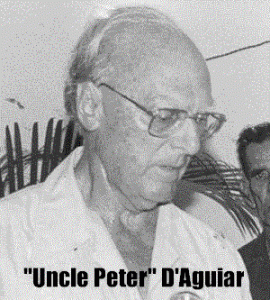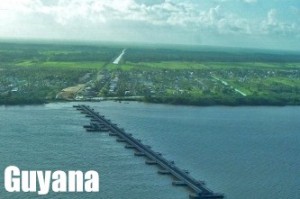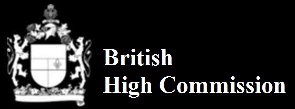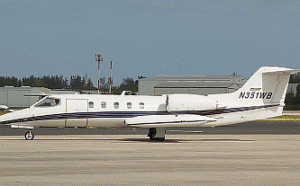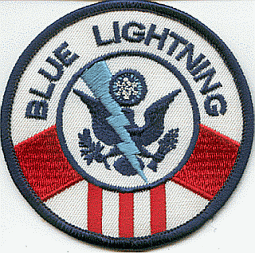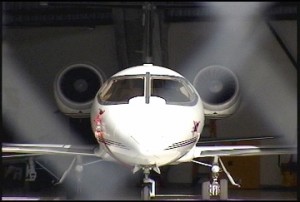"Uncle Peter, Cousin Winston, The Russian Mob, & the CIA"
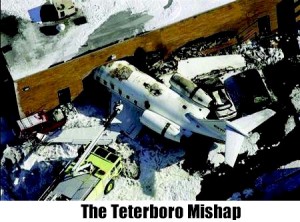 Michael Brassington was sentenced in a packed Federal courtroom in Newark, New Jersey last week for the spectacular crash of one of his company’s jets at Teterboro Airport outside New York City in early February 2005.
Michael Brassington was sentenced in a packed Federal courtroom in Newark, New Jersey last week for the spectacular crash of one of his company’s jets at Teterboro Airport outside New York City in early February 2005.
His sentencing came more than a year-and-a-half after being convicted of multiple felonies in the crash and its aftermath, including recklessly endangering the lives of passengers who included two ex-Presidents as well as numerous celebrities, everyone from Luciano Pavarotti to Keith Richards, and from Burt Reynolds to Snoop Doggie Dogg.
Brassington’s Platinum Jet, an aviation charter company operating out of Fort Lauderdale, Florida, was illegally operating a Bombardier Challenger 600 luxury jet which failed to take off before hurtling past the end of a runway at 200 miles an hour, plowing through an airport perimeter fence and then plunging across a six-lane highway during the height of morning rush hour.
The 10-ton plane’s wings swept like a scythe across the tops of cars on the highway, nearly decapitating, in an instant of never-to-be-forgotten panic and stunned disbelief, several drivers and passengers on their way to work. One suffered permanent brain damage; a number received crippling injuries.
The jet finally embedded itself in a fireball inside a clothing warehouse across the street, where there were numerous burn victims.
Yet not until three years later, right after the Bush Administration left office, was Brassington charged.
His remarkable “good luck” with U.S. authorities would hold during his sentencing. Found guilty of multiple felony counts, it garnered him a feather-light sentence.
As the smoke clears, questions remain. Had Brassington, or his lawyers, achieved this extremely favorable outcome on their own? Had some powerful organization arranged matters for him?
Just who is Michael Francis Brassington, anyway?
The one that was certain was this: When later that morning Michael Francis Brassington walked out of the Federal Courthouse in Newark, he had successfully dodged another bullet.
"An officer and a gentleman"
After a five-week trial, a jury found Brassington guilty of conspiracy, seven counts of lying to federal investigators, and—in the most serious count, with a sentence of up to 20 years in prison—endangering the safety of an aircraft and its passengers.
A half-dozen managers and employees of Platinum Jet, also been charged with crimes, had already copped pleas.
For just one of the seven felony counts of which he was convicted, the Federal sentencing guideline is 20 years.
In a sentencing memo , Asst. U.S. Atty Scott McBride asked the judge to sentence Brassington to 360 months, 30 years, in prison.
But U.S. District Judge Dennis M Cavanaugh said he did not believe regulatory violations caused the plane to crash, stating “I’m just not satisfied from the evidence I heard that the conduct alleged caused the plane to crash.”
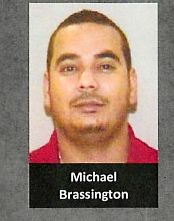 Brassington’s transgressions should more properly have been handled administratively, by the FAA, he said, naming an agency some feel has been almost as effective at regulating aviation as the SEC was at regulating Wall Street before the recent economic crash.
Brassington’s transgressions should more properly have been handled administratively, by the FAA, he said, naming an agency some feel has been almost as effective at regulating aviation as the SEC was at regulating Wall Street before the recent economic crash.
Judge Cavanaugh gave Brassington a sentence that was slightly less than ten percent of the time asked for by the U.S. Attorney.
Convicted of being responsible for a plane crash which left at least a half-dozen people with permanent injuries, including irreversible brain damage, he sentenced Brassington to 30 months in Federal prison.
On hand in the courtroom for the good news were Brassington’s mother, father, two sisters, and assorted well-wishers, whose number were included a former NYPD detective-turned-bodyguard as well as an official from the FAA’s Miami office who testified on his behalf.
But conspicuously absent from the proceedings—despite Brassington's intriguing ties to well-known individuals—was the faintest hint that Brassington, a short, squat, swarthy pilot with big ears, had been operating on anyone's behalf but his own.
"Uncle Peter, Cousin Winston, The Russian Mob, & the CIA"
The record of Brassington's trial contains oddities seldom seen in countries with no tradition of steel drums or midnight coups.
Three days before its scheduled start, to cite one example, his attorney filed a pre-trial motion, beseeching Federal Judge Dennis Cavanaugh to exclude testimony mentioning Brassington in connection with terrorism, or New York's Joint Terrorism Task Force.
Newspapers in Guyana headlined his sentencing, and offered revealing commentary on his background. Brassington was known to move in fast company. "These guys (Brassington and his brother Paul, a co-defendant) are the nephews of Peter D'Aguiar," wrote one observer in Guyana.
"Their aunt was Peter D'Aguiar's wife. They come from a powerful old English Guyanese Family that used to be very strong supporters of the United Force Party. But in recent years they seem to have joined forces with (current President of Guyana) Jagdeo."
"Uncle Peter," it was learned, controlled one of three major political parties in Guyana. Dear Uncle Pete was no stranger to another Brassington Uncle: Uncle Sam, when America's CIA called on him for assistance with the CIA-sponsored 1968 coup in Guyana.
Uncle Sam and Uncle Vayna cavorting together in the Caribbean
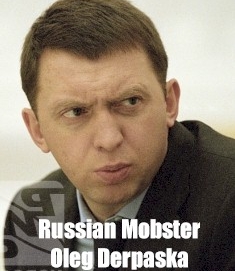 Then, too, there's Cousin Winston.
Then, too, there's Cousin Winston.
"The Brassingtons are also cousins of Winston Brassington, (Guyana President) Jagdeo collector and lover," another commentator in Guyana wrote.
"Cousin Winston" is, or was, Guyana's Minister for Privatisation, one of the most lucrative jobs in the world, to cite the Russian example, which may hold special meaning here.
Winston Brassington cut a $1 billion deal to sell Guyana's bauxite resources to the biggest Russian Mobster in the world, Oleg Deripaska.
Deripaska was the "last man standing" in what Russians call "The Aluminum Wars" during the 1990's, fought for control of one of Russia's key industries.
His company, RUSAL, is today the world's largest aluminum producer.
"An officer and a gentleman"
A letter-writing campaign attesting to Brassington's character may possibly have swayed the judge.
While many of the letters attempted to paint him as "an officer and a gentleman,"the Asst. U.S. Atty pointed out in court, Brassington was in fact a deserter from the Guyana Defense Forces.
Still, many of the letters offer clues to the forces aligned in Brassington's favor.
“The Brassington family is well known in Guyana, a former British colony," wrote one long-time family friend. "Michael Brassington’s great-grandfather came from Britain and established sugar plantations & estates throughout Guyana. The family is well-known for their wealth and power…”
One letter recommending Brassington for having a sterling character came from the brother of the former Premier of the Turks and Caicos Islands, Michael Misick.
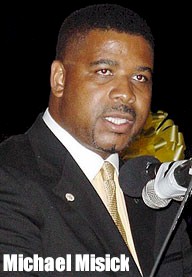 Misick is currently in prison for massive theft from his tiny island government's already-thin revenue stream. Worth $40,000 when he took office, Misick several years later told new wife Lisa Raye Misick, a Hollywood starlet, that he was now worth $120 million.
Misick is currently in prison for massive theft from his tiny island government's already-thin revenue stream. Worth $40,000 when he took office, Misick several years later told new wife Lisa Raye Misick, a Hollywood starlet, that he was now worth $120 million.
While he was accumulating his stash, Misick's personal pilot was Michael Brassington. Misick's corruption was so massive and historic, even for the Caribbean, that for the first time in the history of the British Empire, the Crown took back a possession (the Turks & Caicos) that had already been given independence.
With an utter lack of self-awareness, Misick's brother Peter wrote: “I am extensively involved in the real estate industry in the Turks & Caicos Islands… Michael is a gentleman and a class act.”
Doubtless just like his brother the felon.
British High Commissioner "deeply impressed by excellent manners"
Yet other letters provide new details of Brassington's life in Guyana: His father is an extremely wealthy CEO, one states, who at one time ran Barclay's Bank in the Caribbean. As a boy, Michael had been driven to and from school in a chauffeur driven car. Despite that, he was a humble unassuming sort.
The Honorable David P. Small, the former British High Commissioner in British Guyana, had nice things to say about Brassington's entire family.
“I became well-acquainted with (the Brassington family) while I was British High Commissioner heading our diplomatic mission in Georgetown Guyana,” wrote Mr. Small.
He had, he stated, been “deeply impressed by their excellent manners.”
Learning to trust people out in the "field"
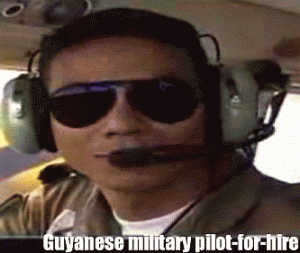 He was a “man of God,” said one letter. He was “someone you can count on.”
He was a “man of God,” said one letter. He was “someone you can count on.”
Regrettably, Chase Bank had cancelled his parent’s accounts, we learn from another letter, owing to what the writer called: “Michael’s long-standing battles with the Federal Government.”
Victor Reynosa, a former NYPD detective-turned-bodyguard, flew with Brassington regularly while he was protecting someone he would describe only as “ a client.” After years in law enforcement and as a private security official, Reynosa found it very hard, he wrote, to trust people out in the “field.”
Brassington, however, made it “very easy.”
Michael's long-standing battles with the Federal Government aside, Randy Williams, the FAA’s Aviation Safety Inspector in Miami, wrote to say he "still couldn’t see where his actions stepped out of the realm of administrative remedy to leap into that of the criminal."
After all, hadn't Brassington, like a gentleman, Williams continued, voluntarily cooperated with the U.S. government's investigation? Williams assays no opinion for why this voluntary cooperation had somehow resulted in six felony convictions for lying to investigators.
A DEA "look-out." Friends in high places. And a milk run for Wally.
Brassington's trial and sentencing is only the latest chapter in a bizarre and brazen decade-long crime spree in the sky. Interested readers can find it chronicled in the dozen or stories collected here, called The Brassington Files.
In just the past three years, Brassington has been the target of investigations by the governments of the U.S., the Turks & Caicos, and his native Guyana. He came through it as the aviation world's equivalent of "The Teflon Don."
Until his conviction in Newark, he'd escaped unscathed every time. Despite his already-mentioned history as a deserter from the Guyana Defense Forces, which he left, perhaps understandably, for a better paying job working for a man who had soon become one of the DEA's Top Ten Fugitives from Justice, Brassington was somehow able to steer the government of Guyana into the purchase of several aging and unreasonably expensive U.S. helicopters, much to the outrage of some in Guyana.
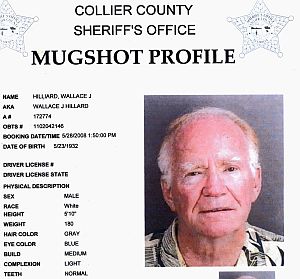 Brassington achieved a modest level of infamy shortly after the 9/11 attack. He had been the co-pilot of the Lear jet (N351WB) of Wally Hilliard, owner of the flight school where Mohamed Atta was then just beginning to learn to fly, when it was surrounded by DEA agents on a runway of Orlando Executive Airport.
Brassington achieved a modest level of infamy shortly after the 9/11 attack. He had been the co-pilot of the Lear jet (N351WB) of Wally Hilliard, owner of the flight school where Mohamed Atta was then just beginning to learn to fly, when it was surrounded by DEA agents on a runway of Orlando Executive Airport.
The DEA Agents, toting submachine guns, found 43 lbs of heroin onboard the plane. Such an impressive amount is known in the drug trade as "heavy weight." The date was July 22, 2000.
It was, said the local Orlando Sentinel, "the biggest bust of its kind in Central Florida history."
It was also the biggest drug bust in history that no one has heard about since.
During the trial for drug trafficking of two Venezuelans who'd chartered the Lear, testimony revealed that the plane had been making weekly flights to Venezuela and back, terminating each time at Teterboro Airport in New Jersey, before it was busted.
The plane was flying what's known as a "milk run."
Yet, curiously, Brassington's name appears nowhere in the DEA affidavit filed with the Court relating the circumstances of the bust. Nor can it be found in other court documents.
Still, aviation sources insisted Brassington had nonetheless been a pilot on the plane.
"Grave threat, maybe. But, definitely lots of juice."
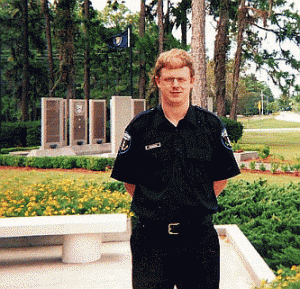 Confirmation of that fact came in early 2004, when a chance encounter further illuminated Michael Brassington's curious connections to powerful people.
Confirmation of that fact came in early 2004, when a chance encounter further illuminated Michael Brassington's curious connections to powerful people.
While returning to the U.S. from the Bahamas, Brassington got into a dust-up with a rookie U.S. Customs Agent.
James Sanders was on duty, and in charge, although just a rookie, of Customs Inspection on the late shift at Fort Lauderdale International Airport when Brassington flew in one Tuesday night.
While checking his luggage, Agent Sanders saw Brassington’s DEA narcotics record in the computer, even as Brassington was indignantly brandishing a letter in his face. The letter, signed by Gloria Marshall, the head of the "Information Disclosure Unit" of the "Mission Support Division" of the Dept. of Homeland Security, seemed designed to smooth Brassington's entry into the U.S.
Rookie Customs Agent Sanders didn’t take the hint.
“It was a strange occurrence," he said later in an interview. "So I hesitated. I said, wait a second. He has this official-looking letter that says they're going to take care of his record… But he still has an active record."
"Check him, check his passengers, his plane, and all his known contacts."
"I felt like a deer in the headlights," Sanders recalled.
"I didn’t know what to do. But I had just enough presence of mind to call Special Agent Norm Bright, listed as Brassington’s 'point of contact.’”
“Point of contact” is U.S. Customs jargon for an Agent who's been assigned particular responsibility for someone whose movements are being tracked.
“Bright was a local ICE Agent and I guess he was tracking Brassington,” said Sanders. “So I called him up, and I told him about the letter. He said you can just disregard the letter. He told me to ignore it."
"He described Mike Brassington as a ‘grave threat to national security,' and told me that I needed to check him, search him, and search all his passengers.”
“And that's what I did,” Sanders explains. “I searched the luggage of all his passengers, and then I searched his plane. I didn't think of him as a terrorist suspect. I just thought he was really into drugs, and that I needed to check him really close. I had no idea of the shit-storm I was about to ignite.”
Operation Blue Lightning
“Norm Bright also told me to try to get a drug dog there. But the problem with that is that on Tuesday nights at Fort Lauderdale International Airport, there aren’t any drug dogs available.”
Shrugs Sanders, “Tuesday night is the drug dogs night off."
Supervisors instructed him that Brassington's entries into the U.S. were handled only by agents from a still-unexplained U.S. Customs team called Operation Blue Lightening.
“I was looking at Brassington’s narcotics record on the computer,” says Sanders, still incredulous at the memory, “when he handed me a letter from Washington.”
Confused, Sanders phoned a Supervisor at Immigrations & Customs Enforcement (ICE) whose name appeared in Brassington’s file.
And that’s when ICE Supervisor Norm Bright, instructed him, Sanders states, that he should treat Brassington “as a grave threat to national security.”
Brassington was involved in—or the subject of—a secretive Miami-based U.S. Government operation, Sanders was told. “Whenever Brassington entered the U.S. a special team from Miami was supposed to come up,” Sanders said.
Brassington was supposed to be met by Agents from something called “Operation Blue Lightning.”
“Operation Blue Lightning is some kind of joint task force," Sanders explained. "I found out later, from a chief inspector on the team, that I wasn’t even supposed to inspect him.”
The EDA (Elite Deviants of America) Cartel
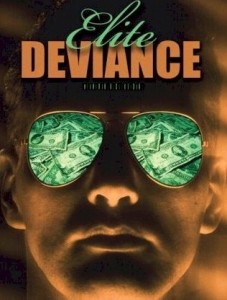 Following his confrontation with Customs Agent Sanders, Brassington did something truly unusual.
Following his confrontation with Customs Agent Sanders, Brassington did something truly unusual.
Despite having a “DEA look-out” for heroin trafficking next to his name; despite flying a plane (N60S) suspected of being used for money laundering; and despite carrying a passenger, Anthony Cirillo, flagged as a suspect in money laundering, he wrote a letter of complaint to the U.S. Customs Department in Washington D.C.
He addressed it to Jason Ahern, soon-to-be the Department's Acting Supervisor, and apparently just "got lucky" again.
Ahern proved to be a sympathetic ear.
Elements of the U.S. Government appear to have taken a surprisingly keen interest in controversial Guyanese drug pilot Michael Brassington during 2003 and 2004.
What happened to U. S. Customs Agent James Sanders after his encounter with Guyanese drug pilot Michael Brassington is the strongest possible argument for further investigation into what, as they say in Texas, "might could be" a continuing criminal conspiracy involving the corrupt elite of Guyana and their American opposites:
It cost him his job.

